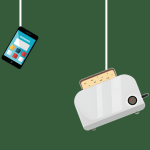Increased blood pressure? Risk of stroke? Higher risk of heart disease?
We can all agree that these are not things that we would like to suffer from, and yet many of us are still having more than the recommended maximum intake of 6g of salt a day (one teaspoon), which makes these things more likely.
Well, this week is Salt Awareness Week. So, how can we lower our salt intake?
- Start from scratch!
One of the easiest ways is to make our food from scratch, meaning that we know exactly how much salt is going into our meals. Always make sure you try your food before adding salt – you may not need it – and you could also try adding herbs and spices instead! - How much is already there?
Make sure you get clued up on the amount of salt that is in your ingredients. Foods like cheese and bacon are already high in salt so find out how much is already in your meal before adding more.
NEVER MISS A BIN COLLECTION – SIGN UP FOR WEEKLY EMAIL REMINDERS NOW.
- Always read the label – and find out what it means!
If you can get to grips with the labels on your foods and understand what the numbers mean you may find a lot of hidden salt in your diet. For example, breakfast cereals, sauces like ketchup and canned foods are often linked with high sugar and salt, so make sure you stick the the portion size on the packaging. - Choices, choices…
Many foods have a low salt option, so try and pick these up when you can. These include things like baked beans, soy sauce and ketchup.
What is ‘high’?
The NHS guidelines say that foods that are high in salt contain more than 1.5g per 100g whie food low in salt have 0.3g of salt or less per 100g. So a simple look at the label will mean that you will know what you are buying.
How much is okay?
The amount you can eat depends on your age. Here are the NHS’ guidelines:
Babies under 1 – less than 1g salt per day
1 to 3 years – 2g salt a day (0.8g sodium)
4 to 6 years – 3g salt a day (1.2g sodium)
7 to 10 years – 5g salt a day (2g sodium)
11 years and over – 6g salt a day (2.4g sodium)
If you need a bit more guidance, www.nhs.uk/change4life has some good tools to help you out, such as the food scanner app, and lots of recipes for you to try.
Never miss a bin collection – sign up for weekly email reminders now.
[button color=”” size=”large” type=”square_outlined” target=”new” link=” http://www.wrexham.gov.uk/english/env_services/recycling_waste/calendar.htm”]GET BIN REMINDERS[/button]









